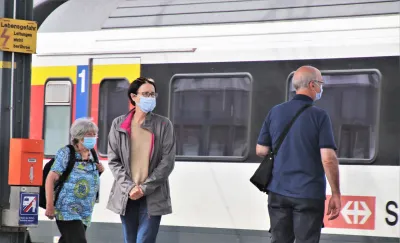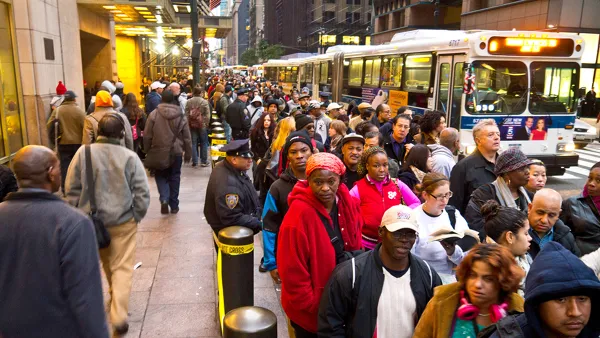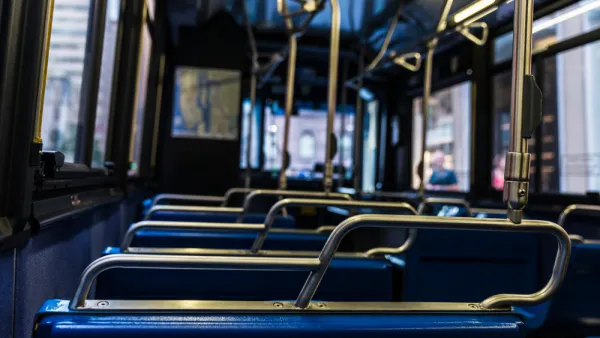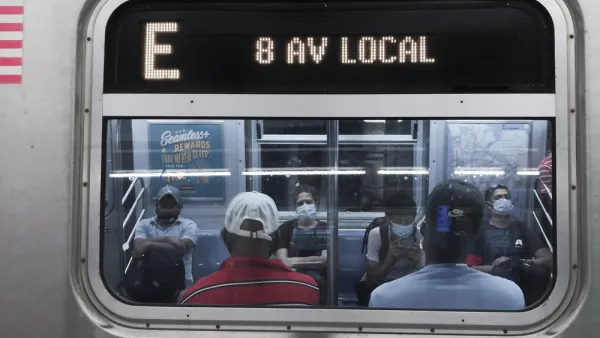Almost a year into the devastating effects of the COVID-19 pandemic, the Urban Institute assesses what we've learned about transportation equity—and what these lessons mean for the future.

In a recent webinar hosted by the Urban Institute, a panel of city and community leaders discussed transportation equity and the barriers and opportunities highlighted by the pandemic. While transit agencies across the country have made steep service cuts, it has become painfully obvious that the people most hurt by reduced service are the essential workers—many low-income and BIPOC—who rely on public transit for their livelihood. Transit cuts also hurt the elderly and people with disabilities, who face increased barriers in finding safe, accessible, and affordable transportation. The panelists agreed that disinvestment in public transit is shortsighted and dangerous, as rolling back the budget cuts will be difficult to do later. After the pandemic, communities will need long-term plans for improved commutes and safe, accessible transit.
Christina Plerhoples Stacy and Christopher Davis highlight the four main lessons that emerged from the discussion. The webinar presented the Institute's new transportation equity data tool and hosted a panel discussion about potential solutions to transportation inequities. The big takeaways:
- Prioritizing roads and highways over public transit perpetuates the negative impacts of structurally racist policies.
- Reducing funding for equitable transportation directly affects essential workers, who depend on public transit more than other groups.
- Funding structures affect how equitable transit systems are.
- Early community engagement matters for planning and implementing policies that provide services to underserved communities.
FULL STORY: Four Lessons for Cities to Help Advance Equitable Transportation during the COVID-19 Pandemic and Beyond

Analysis: Cybertruck Fatality Rate Far Exceeds That of Ford Pinto
The Tesla Cybertruck was recalled seven times last year.

National Parks Layoffs Will Cause Communities to Lose Billions
Thousands of essential park workers were laid off this week, just before the busy spring break season.

Retro-silient?: America’s First “Eco-burb,” The Woodlands Turns 50
A master-planned community north of Houston offers lessons on green infrastructure and resilient design, but falls short of its founder’s lofty affordability and walkability goals.

Test News Post 1
This is a summary

Analysis: Cybertruck Fatality Rate Far Exceeds That of Ford Pinto
The Tesla Cybertruck was recalled seven times last year.

Test News Headline 46
Test for the image on the front page.
Urban Design for Planners 1: Software Tools
This six-course series explores essential urban design concepts using open source software and equips planners with the tools they need to participate fully in the urban design process.
Planning for Universal Design
Learn the tools for implementing Universal Design in planning regulations.
EMC Planning Group, Inc.
Planetizen
Planetizen
Mpact (formerly Rail~Volution)
Great Falls Development Authority, Inc.
HUDs Office of Policy Development and Research
NYU Wagner Graduate School of Public Service




























